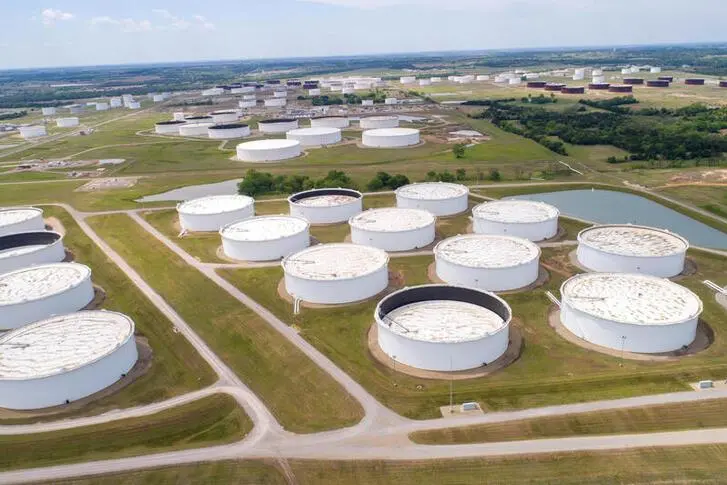PHOTO
U.S. natural gas futures slipped about 2% on Thursday on forecasts for slightly lower demand next week and a easing of gas prices in Europe ahead of a U.S. storage report expected to show a bigger-than-usual build for a sixth week in a row.
That price decline came despite forecasts for cooler weather and higher heating demand this week and record gas prices in Asia that will keep demand for U.S. liquefied natural gas (LNG) exports strong. Even with the cooler forecast, the U.S. weather was still expected to remain milder than normal through early November.
Analysts forecast U.S. utilities added 90 billion cubic feet (bcf) of gas into storage during the week ended Oct. 15. That compares with an increase of 49 bcf in the same week last year and a five-year (2016-2020) average increase of 69 bcf.
If correct, last week's injection would boost stockpiles to 3.459 trillion cubic feet (tcf), which would be 4.2% below the five-year average of 3.612 tcf for this time of year.
Front-month gas futures fell 9.3 cents, or 1.8%, to $5.077 per million British thermal units (mmBtu) at 8:04 a.m. EDT (1204 GMT).
In early October, U.S. gas prices soared to their highest since 2008 on expectations global competition for LNG would keep demand for U.S. exports strong. But after weeks of mild weather, U.S. prices dropped about 25% amid growing belief that the United States will have more than enough gas in storage for the winter heating season.
Around the world, however, gas prices were still at or near record highs as utilities scramble for more gas to refill dangerously low stockpiles in Europe and meet insatiable demand in Asia. High prices and energy shortages have already caused power cuts in Asia and some industries in both Europe and Asia to shut or curtail manufacturing activities.
But no matter how high global gas prices rise, U.S. LNG export plants were already operating near full capacity and will not be able to produce much more LNG until later in the year.
Data provider Refinitiv said output in the U.S. Lower 48 states rose to an average of 92.0 billion cubic feet per day (bcfd) so far in October, up from 91.1 bcfd in September.
Refinitiv projected average U.S. gas demand, including exports, would rise from 86.1 bcfd this week to 87.6 bcfd next week as more homes and businesses turn on their heaters with a seasonal cooling of the weather.
With gas prices near $31 per mmBtu in Europe and $36 in Asia, versus just $5 in the United States, traders said buyers around the world will keep purchasing all the LNG the United States could produce.
Refinitiv said the amount of gas flowing to U.S. LNG export plants averaged 10.4 bcfd so far in October, the same as in September, but was expected to rise in coming weeks as more liquefaction trains exit maintenance outages.
But the United States only has capacity to turn about 10.5 bcfd of gas into LNG.
In the power market, next-day prices at the ERCOT North Hub in Texas jumped to $145 per megawatt hour for Wednesday and $235 for Thursday from $44 for Tuesday as homes and businesses crank up their air conditioners to escape a late October hot spell.
(Reporting by Scott DiSavino Editing by Nick Zieminski) ((scott.disavino@thomsonreuters.com; +1 332 219 1922; Reuters Messaging: scott.disavino.thomsonreuters.com@reuters.net))





















